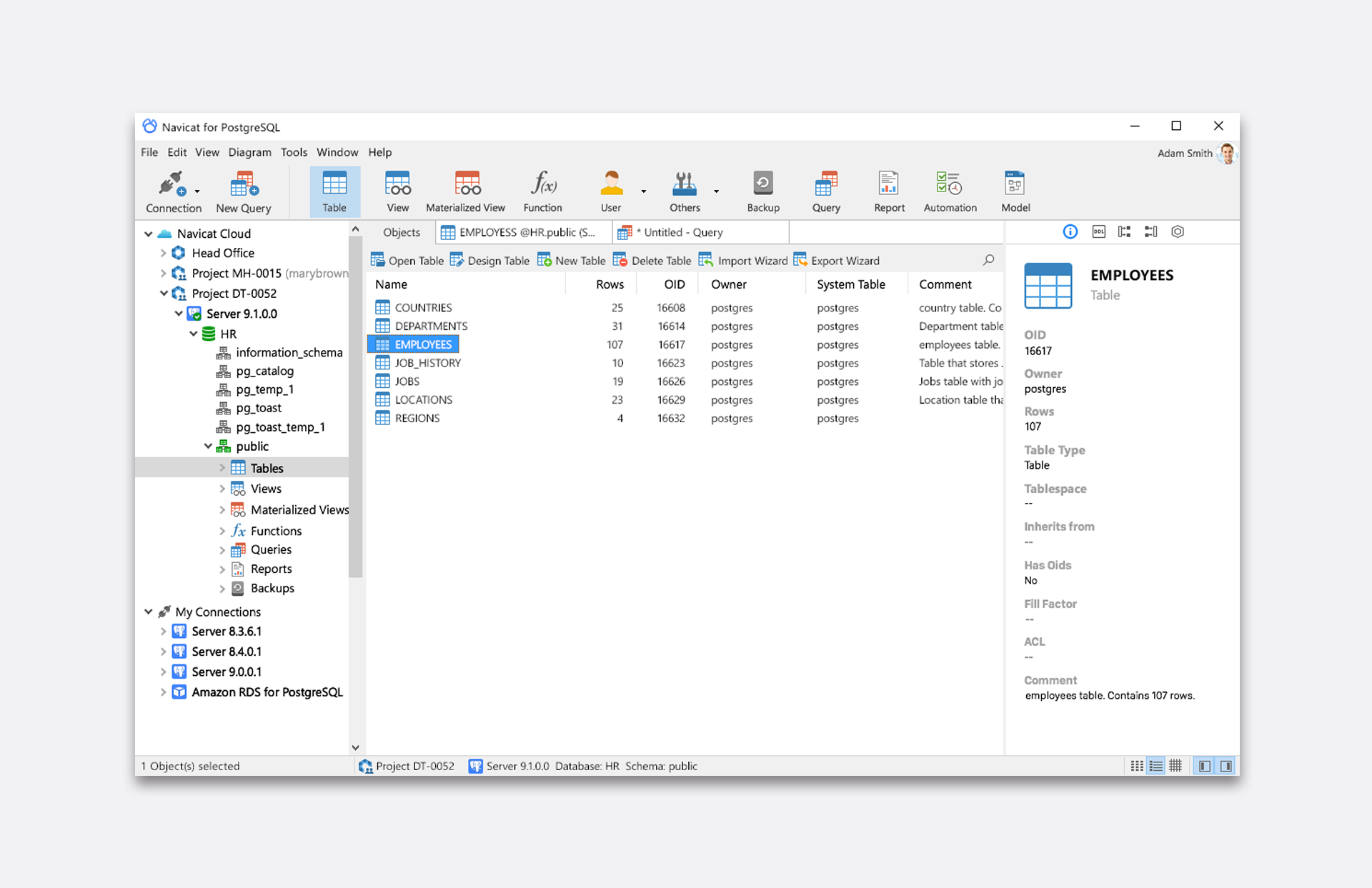PostgreSQL is a direct descendant of the Postgres database developed at the University of California, Berkeley, as a non-profit research project. Michael Stonebraker, a Turing Prize winner (the most prestigious award in the world of computer science), worked on Postgres with his students to create a database without the problems inherent in classic database management systems. From the very beginning, Postgres was an enthusiast project and was created by developers, for developers, who know "real" programming at the algorithmic level.

POSTGRESQL
Postgresql is a powerful object-relational database system. It is functional, productive, and secure. Postgresql is a good choice for e-commerce websites and applications and any other purpose.
OpenERP, Skype, Alibaba, TripAdvisor, and many others use PostgreSQL in their websites and applications, and most importantly, you can use it absolutely free of charge, because Postgresql is an open source database.
PostgreSQL proudly calls itself the world's most advanced relational database. It was created to make working on complex projects easier, as well as to standardize development and provide good scalability.
The main thing that makes Postgresql good is that it combines the best features of classic relational and object databases. It supports many types of data, from numeric and string to network addresses and JSON documents, as well as several unique ones. Postgresql has features that are common to both types of databases, and you can create your own types and functions, even use multiple programming languages in your project. At the same time, you get not just more flexibility to solve your tasks, but also scalability, consistency (integrity and coherence), and fault tolerance of the system.
PostgreSQL can be used without exaggeration for any project, but sometimes it's more profitable to choose another DBMS. Without a database, your website or application will not be able to work in any case, and which one is better depends on the specifics of the business task.
Developers love Postgres and actively use it. This is an open source technology with a thirty-year history, during which it has improved many times over. Nowadays, anyone can find answers to questions and even ready-made solutions for a variety of tasks in the public domain. Architects recommend Postgres for almost all new projects. The fact that it hasn't yet overtaken MySQL in popularity is due to the large number of complex websites and applications with a history that are unprofitable to change the database, as well as corporations that use several databases in their products at once, each of which is better suited for a specific task. Nowadays, finding an experienced development team that knows how to customize postgresql is very easy.
You can extend PostgreSQL functions freely and for free at any time. This system is compatible with many programming languages and software platforms, which means that it will be much easier to integrate the database with any tool compared to other DBMSs. Plus, PostgreSQL offers convenient and sophisticated features to ensure data integrity, parallelism and performance, search, security, and disaster recovery. All of this will help optimize your application, ensuring that it runs fast, stable, and securely.
Postgres is able to process several tasks in parallel using the MVC mechanism and at the same time fully complies with ACID requirements, which guarantees the reliability, predictability, and security of the system. This is important for transactions, a set of operations that are either carried out or not. An example: money transfers to pay for a product or service on a website or in an application. PostgreSQL's transactional nature ensures that the money is debited from the buyer's account and transferred to the seller, and if any of the nodes fails, the money will remain with the buyer and the purchase will not be completed.
PostgreSQL supports many more standard SQL functions than other popular relational databases, and it offers many original tools to go with them. In 2020, it's 170 out of 179 functions, and none of the competitors have come close to this level. This means that for all its flexibility and functionality, Postgres remains a clearly standardized system. This approach increases the speed of development and reduces the number of errors.
PostgreSQL is a flexible, structured, functional, and secure database system. It can be used for small startup applications and for developing loaded web applications. It will grow and evolve with your project, even if the amount of data grows millions of times after launch.
Developers love Postgres and are able to use it to create complex and productive websites and applications for e-commerce and more.
Ecommerce Development Services Ecommerce Development Services
We help to build a successful ecommerce business with flexible, scalable and custom solutions. Using our wide expertise, we guide companies through the complexities of ecommerce efficiently, with solutions that adapt to their unique needs.


